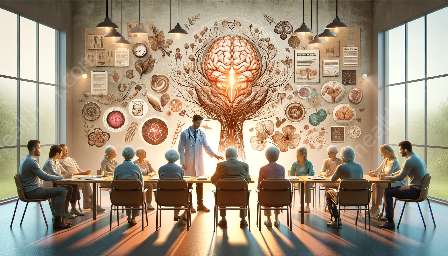Schizophrenia is a complex and serious mental disorder that affects how a person thinks, feels, and behaves. It is important to understand its impact on mental health and general wellbeing. This comprehensive guide explores the symptoms, causes, diagnosis, and treatment of schizophrenia, shedding light on the condition and its effects on individuals living with it.
Symptoms of Schizophrenia
Schizophrenia is characterized by a range of symptoms that can vary in severity and presentation from person to person. Common symptoms include:
- Delusions: Beliefs that are not based in reality and may appear bizarre or illogical.
- Hallucinations: Seeing, hearing, or feeling things that are not real.
- Disorganized thinking and speech: Difficulty organizing thoughts or expressing them coherently.
- Extreme agitation or catatonia: Unusual movements or immobility.
- Impaired cognitive function: Difficulty focusing, remembering, or making decisions.
- Emotional and social withdrawal: Difficulty engaging in social interactions and expressing emotions appropriately.
Causes of Schizophrenia
The exact cause of schizophrenia is not fully understood, but it is believed to be a result of a complex interplay of genetic, environmental, and neurochemical factors. Factors that may contribute to the development of schizophrenia include:
- Genetic predisposition: Having a family history of schizophrenia or other mental disorders can increase the risk.
- Brain chemistry and structure: Imbalances in brain chemicals and abnormalities in brain structure may play a role.
- Stressful life events: Traumatic experiences or chronic stress can trigger the onset of schizophrenia in susceptible individuals.
- Drug abuse: Substance abuse, particularly during adolescence, has been linked to an increased risk of developing schizophrenia.
- Interviews and observations: Gathering information about symptoms and behavior patterns.
- Physical examination: Ruling out any underlying medical conditions or drug-related causes.
- Psychological testing: Assessing cognitive function, mood, and personality traits.
- Discussing family history: Exploring the presence of mental health conditions among close relatives.
- Reduce symptoms: Antipsychotic medication is often prescribed to alleviate symptoms like hallucinations, delusions, and disorganized thinking.
- Improve functioning: Therapy, including cognitive behavioral therapy (CBT) and social skills training, can help individuals manage daily activities and improve social interactions.
- Prevent relapses: Ongoing support and therapy can help prevent or reduce the frequency of relapses.
- Address co-occurring conditions: Many individuals with schizophrenia have co-occurring conditions, such as depression or substance abuse, which also need to be addressed.
Diagnosing Schizophrenia
Diagnosing schizophrenia involves a comprehensive assessment of symptoms, medical history, and psychological evaluation. A healthcare professional, typically a psychiatrist, will conduct a thorough evaluation and may use specific criteria outlined in the Diagnostic and Statistical Manual of Mental Disorders (DSM-5) to make a diagnosis. The process may include:
Treatment of Schizophrenia
Schizophrenia is a chronic condition that requires lifelong management. Treatment typically involves a combination of medication, therapy, and support services. The goals of treatment are to:
Impact on Mental Health and Wellbeing
Schizophrenia can have a profound impact on mental health and overall wellbeing. Individuals living with schizophrenia may face stigma, discrimination, and challenges in maintaining relationships and pursuing meaningful activities. It is essential to foster understanding and support for individuals with schizophrenia and promote access to comprehensive mental health services.
By gaining insights into the symptoms, causes, diagnosis, and treatment of schizophrenia, we can strive to create a more compassionate and inclusive environment for those affected by this complex condition.















































